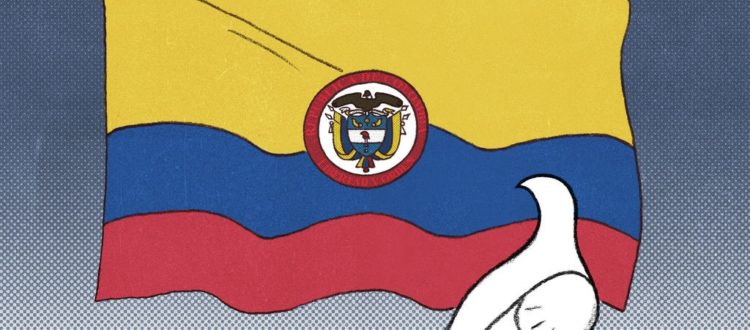Colombia’s Peace Is Too Precious to Abandon
It seemed miraculous when the Colombian government signed a peace agreement with Marxist-inspired insurgents in 2016, ending a half-century of conflict that killed at least 220,000 people and devastated the countryside.
Former President Juan Manuel Santos was awarded a Nobel Peace Prize for negotiating the complex accord with the Revolutionary Armed Forces of Colombia, or FARC.
From before the time it was signed, though, many opposed it, furious that rebels or soldiers would go unpunished, or doubting that the government would follow through on promises of rural assistance.
Now, nearly three years later, with the nation led by opponents of the pact, peace may be unraveling, which would be a disaster for the country, for the region and for the cause of democracy.
While FARC has disarmed and many of its soldiers have returned to civilian life, the government has largely ignored its promises of rural aid and development that were pivotal to the agreement — universal education from preschool through secondary school, access to drinking water and development of electricity, roads, bridges and jobs.
As many as 3,000 militants have resumed fighting. The army has stepped up attacks against militants and alleged criminals, leading even some officers to fear that such aggressive tactics will lead to civilian deaths.
At the same time, paramilitary gangs have reportedly killed at least 500 activists and community leaders since the peace agreement was reached. More than 210,000 people have been displaced from their homes since 2016 by the renewed fighting.
The current president, Iván Duque, and his right-wing allies have sabotaged peaceful progress under the pact, in which the government was to work with the rebels to replace coca production with other crops. It has cut funding for that initiative, and last year land used for coca production reached a new high, while paramilitaries and criminal gangs, also lured by cocaine profits, dominate regions where FARC once held sway.
A crucial, and most controversial, element of the deal involved creating a reconciliation process in which rebels and government soldiers would testify under broad immunity before tribunals about the horrors of the long war. Blame would be assigned, with no one facing jail time, except for a few specific crimes. Now Mr. Duque is pushing to overhaul the tribunals so that former rebels could face harsher punishment.
That alone could end the accord. Putting further stress on the peace deal, two former FARC leaders, including the lead peace negotiator, Iván Márquez, last month refused to appear before the tribunals. On Monday, on social media, Mr. Márquez said it was a mistake for the rebels to have surrendered their weapons.
The United States spent more than $10 billion over the past 18 years to train and equip the security forces that engaged in the war, and in building legal institutions and other programs that could keep the peace.
At this crucial moment, the United States should be committed to keeping Colombia’s hard-won accord alive.
Yet experts see little evidence that the Trump administration is seriously interested. Since 2017, the president has threatened to decertify Colombia from receiving American aid because of surging coca production. For two years running, he proposed big cuts in aid to Colombia, which Congress rejected.
This risky moment could be just the time for the business-oriented approach to problems that Mr. Trump has often favored. Working with major regional countries to make sure Mr. Duque faithfully adheres to the accord, including the transitional justice system, would encourage international investment in Colombia’s disenfranchised rural areas. That sort of development is vital to any hope of lasting peace.
“Twenty years ago, Colombia was on the verge of being a failed state, but the U.S. has been crucial in helping turn the situation around,” Bernard Aronson, a former American envoy to the Colombia peace process, told The Times. “To walk away now, especially with Venezuela imploding, would be a colossal act of shooting ourselves in the head.”
Fuente: https://www.nytimes.com/2019/05/23/opinion/colombia-peace-agreement.html

